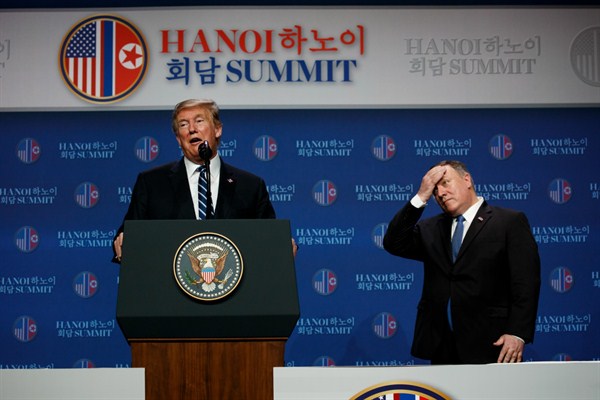Donald Trump is not the first American president to run into a brick wall trying to negotiate away North Korea’s nuclear weapons capability. President Bill Clinton thought he had a deal in 1994, known as the Agreed Framework, to end the nuclear threat posed by Kim Il Sung’s dynasty. But the regime of his son, Kim Jong Il, continually demanded new concessions for complying, while secretly exploiting every loophole in the agreement to continue its nuclear activities. President George W. Bush ultimately rejected that deal as unworkable and tightened sanctions. North Korea’s response was to withdraw from the Nuclear Nonproliferation Treaty, which it had joined in 1985, and test a nuclear weapon. President Barack Obama tried “strategic patience”—demanding that North Korea take steps toward denuclearization before his administration would resume talks—to which the latest North Korean leader, Kim Jong Un, responded with belligerent behavior and more nuclear and missile tests.
In 2016, experts estimated that North Korea had accrued enough fissile material for around a dozen nuclear weapons, after nearly 30 years of negotiations and sanctions that aimed to prevent just that. Through testing, North Korea has also demonstrated a capability to reach the United States with intercontinental ballistic missiles, contrary to what Russian President Vladimir Putin allegedly told Trump.
Trump fancies himself a great dealmaker and thought he could do better than his predecessors. In his first year in office, he ratcheted up his rhetoric, threatening “fire and fury” the likes of which “the world has never seen.” In response to missile and nuclear tests in the summer of 2017, then-U.S. Ambassador to the United Nations Nikki Haley pushed the Security Council to tighten sanctions, and China finally seemed to be taking sanctions enforcement seriously.

